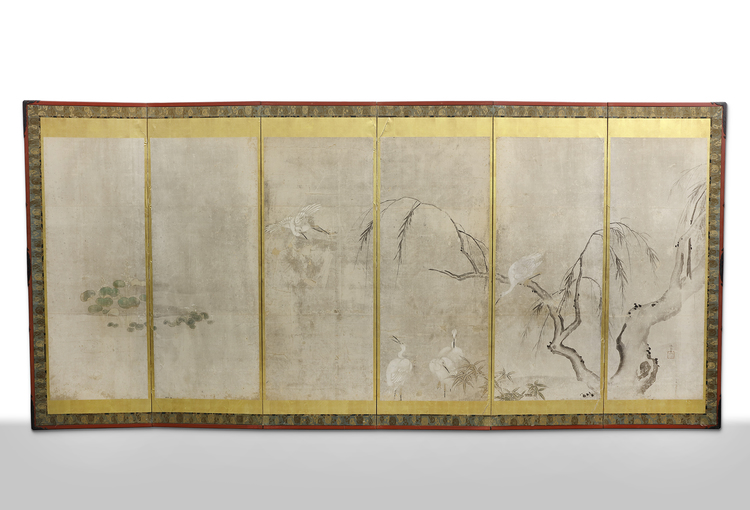Lot 133 A JAPANESE SIX-PANEL SCREEN, EDO PERIOD (1615–1868)
This serene and poetic six-panel Japanese screen from the Edo period (1615–1868) is a masterful ink and light color composition that captures the grace and stillness of nature through the imagery of cranes and willow trees.
Painted on paper with delicate brushwork, the scene unfolds across six tall panels, each bordered with elegant golden silk brocade and framed in lacquered wood. The central focus is a gathering of white cranes, traditional symbols of longevity and peace, depicted standing calmly or in gentle motion among swaying willows and bamboo.
The composition flows with refined asymmetry—lush vegetation and rocky landscapes gradually give way to a more open space, reflecting classical Japanese aesthetics of negative space (ma), and the natural rhythm of seasonal transition. The restrained palette and soft ink washes suggest early spring mist or fading twilight, enhancing the tranquil mood.
Signature and seal markings in the final panel suggest attribution to a school of professional Edo-period painters, possibly influenced by the Kano or Tosa schools, known for combining naturalism with refined decorative style.
This screen not only serves as a visual artwork but also evokes a contemplative atmosphere, making it ideal for display in a traditional interior, tea room, or art collection. It is a timeless representation of Japanese harmony with nature, and an outstanding example of folding screen art (byōbu).
182 by 390 cm.


